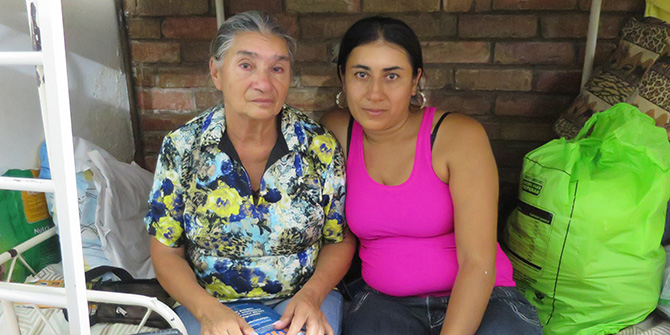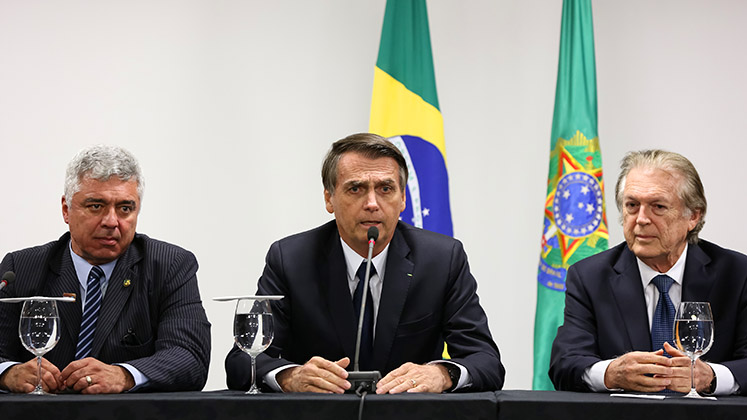 After recent elections, Chile can shake off social and economic crisis, as long as it avoids the missteps of its neighbours, writes Kirsten Sehnbruch (LSE International Inequalities Institute).
After recent elections, Chile can shake off social and economic crisis, as long as it avoids the missteps of its neighbours, writes Kirsten Sehnbruch (LSE International Inequalities Institute).
• n.b. republished courtesy of The Guardian; Creative Commons does not apply
In October last year, after 12 months of almost continuous protests, Chileans used a national referendum to vote overwhelmingly in favour of establishing a new constitution. This result finally sounded the death knell for a constitution that was instituted by the authoritarian regime of General Augusto Pinochet 40 years ago.

Now, Chileans have elected the members of the constituent assembly that will be charged with writing this new constitution in a democratic process, that can only be described as exemplary, held over two days last week – even though turnout was disappointingly low.
Voting for the assembly was combined with municipal elections, and, for the first time in the country’s history, elections for regional governors.
In a political landscape in which democratic power was long rigged so that left and right coalitions would obtain roughly half of the votes, the election results were nothing short of an earthquake – one that no pollster or pundit had foreseen.
Support for the right-wing coalition of President Sebastián Piñera plummeted to 24% of the vote. This devastating result was compounded by the loss of many municipalities that have traditionally voted for the right. Central Santiago even swung from the extreme right to the Communist party. Like the social protests that led to this moment, the election results are an indictment of the political establishment, particularly of its centre-right wing, which has spent 30 years persistently blocking progressive reforms.
Most of the remaining 76% of the elected assembly can be placed somewhere on the left of the political spectrum. However, the main centre-left coalition, which had successfully governed Chile for 24 of the last 31 years, was equally decimated, achieving only 16% of votes. By contrast, a new left-wing coalition composed of the Communist party and the Frente Amplio (the former student leaders who led the protest movements in 2006 and 2011) obtained 18%, while independent candidates and indigenous leaders (for whom a proportion of seats was reserved) won the remaining 42%.
Put differently, only 40% of the votes went to establishment candidates, while 60% went to independents or newcomers linked to a fragmented spectrum of left-wing parties and social movements.

The new assembly looks much more like the Chilean population than anything that came before it: 52% of delegates are women. In fact, the election results were adjusted in favour of men to achieve gender parity – a historical first. It also includes 17 members who represent different indigenous peoples. Among these new members are an assortment of experienced politicians, constitutional experts, activists, community leaders, and some populists. The gap between the aspirations and expectations of average Chileans and those of the people who represent them has narrowed significantly.
Crucially, the right-wing defenders of the Pinochet constitution did not achieve the one third of votes necessary to veto clauses in the new constitution, which will have to be approved by a further referendum in 2022. Neither did any other coalition. This means that all issues are on the table, and assembly members will have to listen and debate each other until they achieve agreement.
The election results have created the most unpredictable political scenario imaginable. The presidential candidates of two traditional parties have already stepped back from the official primaries. The first round of the presidential elections scheduled for November this year are likely to include a plethora of candidates, none of whom may capture a convincing proportion of the vote. With the field so open, presidential candidates will find it difficult to define their agendas and will have to work closely with colleagues in the assembly and coordinate proposals.
So, what can we expect from this new assembly and which issues is it likely to debate? The short answer, of course, is everything. And herein lies the risk. If everyone brings a shopping list to the table, debates will be endless and could potentially degenerate into ego battles and populist solutions such as those we have seen in other fraught constitutional processes in Latin America.
A more optimistic approach is to hope that debates on issues such as human rights, social justice, and environmental protection will no longer be constrained by entrenched elites defending their privileges and profits. We can expect the role of free markets in areas of public policy such as pensions, health, education, and transport to be questioned. The role of the state and its institutions will also likely be re-examined, as will the conditions under which Chile’s natural resources, particularly copper and lithium, are extracted.
Yet the most important role of the assembly will be to show that it can function and produce workable results. This means representing the interests of the electorate without destroying the existing political and socio-economic stability that Chileans have come to value. Such a result would be emblematic in a region where the devastating fallout of the COVID crisis has already led to a sharp decline in economic activity and caused increased levels of hunger, poverty, and inequality.
The challenge for Chile now is to come out of a social and economic crisis without degenerating into the kind of destructive populism we have seen elsewhere in the region.
Notes:
• The views expressed here are of the authors rather than the Centre or the LSE
• This article from The Guardian is reproduced here with their permission
• Please read our Comments Policy before commenting





